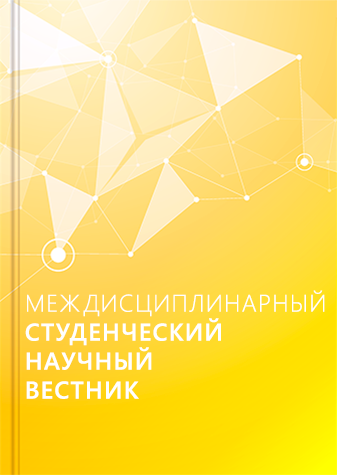One of the modern and most effective methods of combatting corruption in our country is anti-corruption expertise. It helps to find and analyze the factors and conditions causing corruption. To understand how anti-corruption expertise works we should turn to the concept of corruption, which is distinguished and interpreted by the scholars differently. In this paper we accept the official concept defined in the regulatory legal acts of the Russian Federation.
According to Federal Law from July 17, 2009 No. 172-FZ (amended on October 21, 2013) “on anti-corruption expertise of regulatory legal acts and draft regulatory legal acts”, corruption factors are the provisions of regulatory legal acts (draft regulatory legal acts), which establish unreasonably broad limits for a law enforcement officer or the possibility of unjustified application of exceptions to general rules, as well as provisions containing vague, complex and / or burdensome requirements for citizens and organizations and thereby creating the conditions for the manifestation of corruption.
Scientists usually divide corruption factors into two types. The first type is the provisions of the normative acts or their drafts that set an unreasonably broad margin of appreciation for the enforcement officers or the possibility of the unjustified application of exceptions to general rules. The second type is the provisions of regulatory legal acts containing indefinite, burdensome requirements for citizens and organizations [1]. We will use the above concept and division into different types to reveal the faults of corruptive factors as a result of anti-corruption expertise.
The purpose of anti-corruption expertise is to eliminate gaps in the law, which will prevent officials from using their privileged position. This is a great advantage of this method over other methods of combatting corruption. Identification and elimination of corruption prerequisites at the stage of adoption of a regulatory legal act will not only prevent corruption of the officials, state authorities and local governments, but also will improve their performance and, therefore prevent violations of rights and freedoms of citizens, as well as the legitimate interests of economic entities. However, this method has its own drawbacks that the Office of the Ministry of Justice of the Russian Federation for Tyumen region tried to distinguish in unofficial documents.
Analyzing the practice of the Department of Justice we can point out that none of anti-corruption acts implies an inspection of corrupted practices. As a result of anti-corruption expertise the prosecutor can request to change the regulatory legal act, or appeal to the court. In this case, a decision is made by the Ministry of Justice, federal executive body, or another state body and organization.
In practice any anti-corruption expertise is initiated by the subjects specified in the law. An ordinary individual cannot attempt to declare a deficiency in the law. Otherwise, he will have difficulties.
Another problem is the instability of anti-corruption expertise. A lot of changes and amendments were adopted in a relatively short time. In 2004, the list of corruption-related factors constituted 11 items. In 2007, there were 22 corruption-related factors. In 2009, we see 16 corruption-related factors, in 2010, 11 corruption-related factors [2].
In connection with this, we can speak about different approaches in understanding of the fight against corruption, which sometimes led the legislators to a radical change of methods, e.g. combining factors, or rejecting certain provisions.
Analyzing the data presented by various independent organizations we can say that Russia takes the 138 th place among 180 countries according to the level of corruption [7]. The figure has been stable since 2009. Despite the anti-corruption expertise, our country suffers corruption in all spheres of the political hierarchy, from the federal to local authorities. Thus, we can assume that anti-corruption expertise deals not with the root cause of the problem, but with its consequences. According to the head of the Ministry of Internal Affairs of Russia, General Andrei Kurnosenko, the level of bribery in the country was 75% higher in 2016 than a year before and an average bribe comprised almost 330 thousand rubles that year [3].
Corruption is a broad concept covering all sectors of public life and social structure. It requires comprehensive combatting measures. Nevertheless, anti-corruption expertise has a narrow focus, which affects only regulatory acts. Learning the expertise obtained from the Department of Justice for Tyumen region, it makes clear that only 176 from 876 legal acts were rechecked in the period of 2009-2013. 13 legal acts from the list were recognized to corruption exercise. This suggests that the problem is not in the regulatory legal acts. It is much deeper and we should look deeper at other components of corruption. As a result, a problem of corruptive factors of anti-corruption expertise arises. In legal science you can find a few interpretations of corruptive factors. According to A. Nesterov, we can identify corruptive characteristics of the norm [4]. A. Kudashkin believes that corruptive factors are faults in legal norms [5]. E. Talapina and V. Yuzhakov insist that “there are faults of norms and legal formulas contributing to manifestation of corruption” [6]. Anyway, all these interpretations have a common feature: they show the lack of proper legal technique. They say about the imperfection of the final product that is aimed to combat corruption.
In conclusion, we would like to point out that the effect of anti-corruption expertise depends on the way we consider it. It can not be used as the only method of combatting corruption. Anti-corruption expertise can help if it is integrated into a complex set of anti-corruption methods. Our government makes a big mistake trying to use this expertise as the main way to combat corruption.


